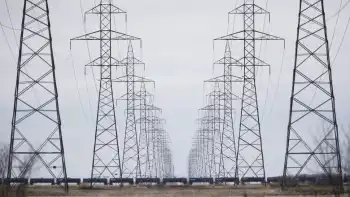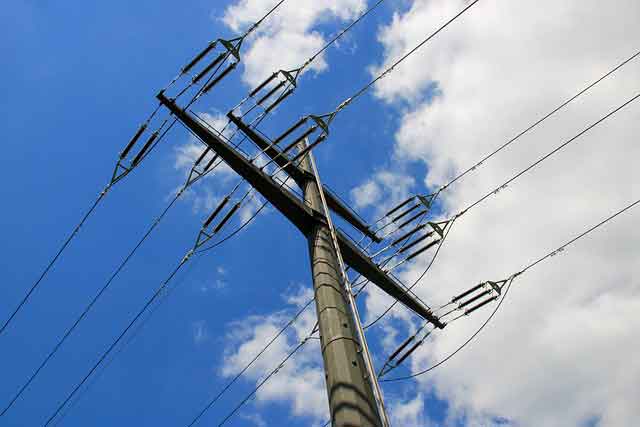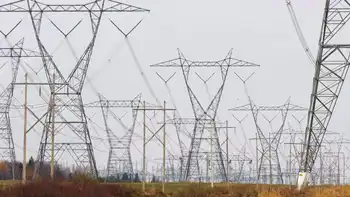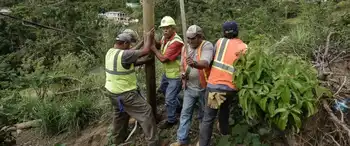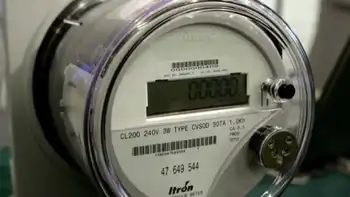Renewable industry critical for Florida
By Charles H. Bronson, Southeast Farm Press
NFPA 70e Training - Arc Flash
Our customized live online or in‑person group training can be delivered to your staff at your location.

- Live Online
- 6 hours Instructor-led
- Group Training Available
One of the most exciting components of this industry is biomass energy, which recognizes the value of Florida's vast farmland and forest lands and mild climate, as it allows "crops" to be grown almost year round.
Recently, some have suggested that facilities which convert clean biomass into electricity should not be a part of Florida's energy future. I respectfully disagree. The U.S. Environmental Protection Administration, the U.S. Department of Energy, and most authoritative environmental organizations have recognized biomass as a source of energy that is cleaner than traditional carbon-based fossil fuels.
The Florida Department of Agriculture and Consumer Services (FDACS) has sponsored the annual Farm to Fuel Summit since 2006, which aims to promote the production, distribution, and use of renewable fuels. The Florida Legislature created the initiative in state statute to enhance the market for and promote the production and distribution of renewable energy from Florida-grown crops. Additionally, Florida seeks to utilize forest logging residues to enhance the value of agriculture products in the state. This foresight has allowed Florida to capitalize on the renewable energy movement that has rapidly emerged across the nation.
The Obama Administration just announced a comprehensive strategy to enhance American energy independence, launch a new clean energy economy that includes renewable energy forms such as biomass, and create millions of jobs. Here in Florida, biopower companies are already proposing projects to create energy from materials that would otherwise be landfilled or burned openly in slash piles. In rural areas in particular, providing opportunities for municipalities and counties to create their own energy with area-grown resources, including short-rotation woody crops, is exciting from both a renewable energy and an economic development standpoint. Rural areas such as Gadsden County enjoy enormous forestry resources; encouraging biomass production in these communities also benefits forestry producers by providing economic incentives for them to maintain healthy, sustainable forests that generate clean energy and reduce carbon pollution.
The Department of Agriculture and Consumer Services' Division of Forestry is currently working cooperatively with the University of Florida and the Florida Department of Environmental Protection to complete a forest sustainability study, requested by the Legislature, that will look at new energy markets and their impacts on forest supply and forest products pricing into the future in Florida. The ideal world is one in which our current forest products industry can co-exist with the new bio-energy markets and keep our forests sustainable while producing valuable forest products and clean renewable energy.
Perhaps no one else understands the economic downturn better than the people of Florida. In a state that depends on tourism and the service industry almost as much as it depends on agriculture, demand for such services has fallen and businesses are hurting like never before.
While nothing will replace Florida's one-of-a-kind tourism industry, the state can embrace new, sustainable industries that will have a long-term impact on job creation and economic development. As Florida continues to position itself in the forefront of the renewable energy industry, we will benefit from an industry that is growing rapidly as the public demands cleaner, greener energy.
While Florida is known for its sandy beaches and palm trees, our state is also home to vast amounts of forest resources: Nearly 16 million acres of timberland. Florida's $16.57 billion forestry industry, the state's No. 1 agricultural commodity, has long represented sustainable jobs for Floridians. Yet the forest industry is struggling, with paper sales down and an alarming downturn in new home construction, leaving timber products piling up with few customers to purchase them. We have an opportunity now, however, to take advantage of our forestry industry by promoting bio-power.
Utilizing clean wood and wood waste to create energy requires employees in the forest to gather the material, employees on the roads to transport material to biopower facilities, and employees in the facilities to operate and maintain them. As USDA Agriculture Secretary Vilsack said in August of last year, "by using a collaborative management approach with a heavy focus on restoring these natural resources, we can make our forests more resilient to climate change, protect water resources, and improve forest health while creating jobs and opportunities."
Simply put, bio-power will put a lot of Floridians back to work. Florida can lead the nation in bio-power technology and the new jobs it can create. Both state and federal policymakers agree that biopower is critically important in reducing greenhouse gas emissions, increasing our energy security and creating jobs, particularly in rural communities. Partnering with bio-power companies, companies that are committed to bringing this technology to Florida in a way that is environmentally sensitive and respectful of health impacts, can put the Sunshine State in the forefront of the new energy economy.





